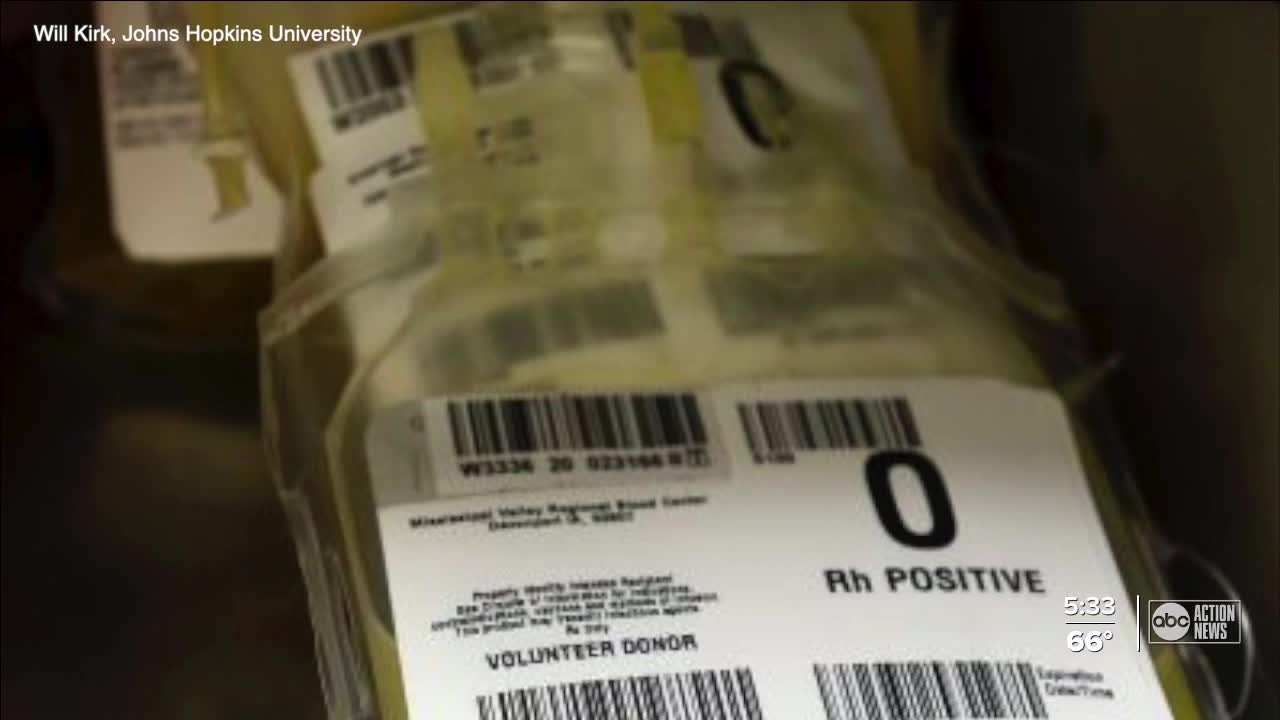ST. PETERSBURG, Fla. — Plasma transfusion is nothing new, the process happens every day in hospitals around the world, but using convalescent plasma to keep COVID patients out of the hospital is something researchers think can work.
“The indication for standard plasma is primarily to treat bleeding, whereas the role of convalescent plasma is to treat infectious diseases,” said Dr. Evan Bloch, an Associate Professor of Pathology.
This is why researchers at Johns Hopkins Medicine and Johns Hopkins Bloomberg School of Public Health put convalescent plasma to the test in June 2020 to see if it could help keep COVID patients out of the hospital. The clinical trial wrapped in October 2021, and a month later, in November 2021, researchers found it works.
“It can be deployed rapidly including in times of emergency with the emerging infectious diseases and the infrastructure for collection is already present in low and middle-income countries,” said Bloch.
“A lot of the countries in the world can deploy it and use it,” said Dr. Arturo Casadevall, a Professor of Molecular Microbiology & Immunology and Infectious Diseases at the JH Bloomberg School of Public Health.
Dr. Bloch says that’s good because those are areas that may not have access to vaccines or monoclonal antibody treatments.
Nearly all of the 1,181 participants in the trial weren’t vaccinated. Basically, half were given the convalescent plasma, the other half got a placebo.
The plasma was taken from former COVID patients who recovered from the virus and had strong antibodies.
Researchers say 2.9% of the patients who received the plasma had to go to the hospital. That number was 6.3% for the group that got the placebo which they say reduced the need for hospitalization by more than 54%.
“We know we can reduce hospitalizations, transfusing up to nine days,” said Dr. David Sullivan, a professor of molecular microbiology and immunology at JH Bloomberg school of public health.
And, they think it can keep up with mutations like omicron.
“The polyclonal opposition composition, it’s more durable or adaptive than some of the targeted therapies such as monoclonal antibodies that we’ve witnessed have diminished efficacy with viral evolution,” Dr. Bloch said.
More research is needed to see what happens when the plasma is taken from folks who are vaccinated, but researchers believe it could be even more effective.
The FDA is currently reviewing the therapy. To read the full clinical trial results, click here.



